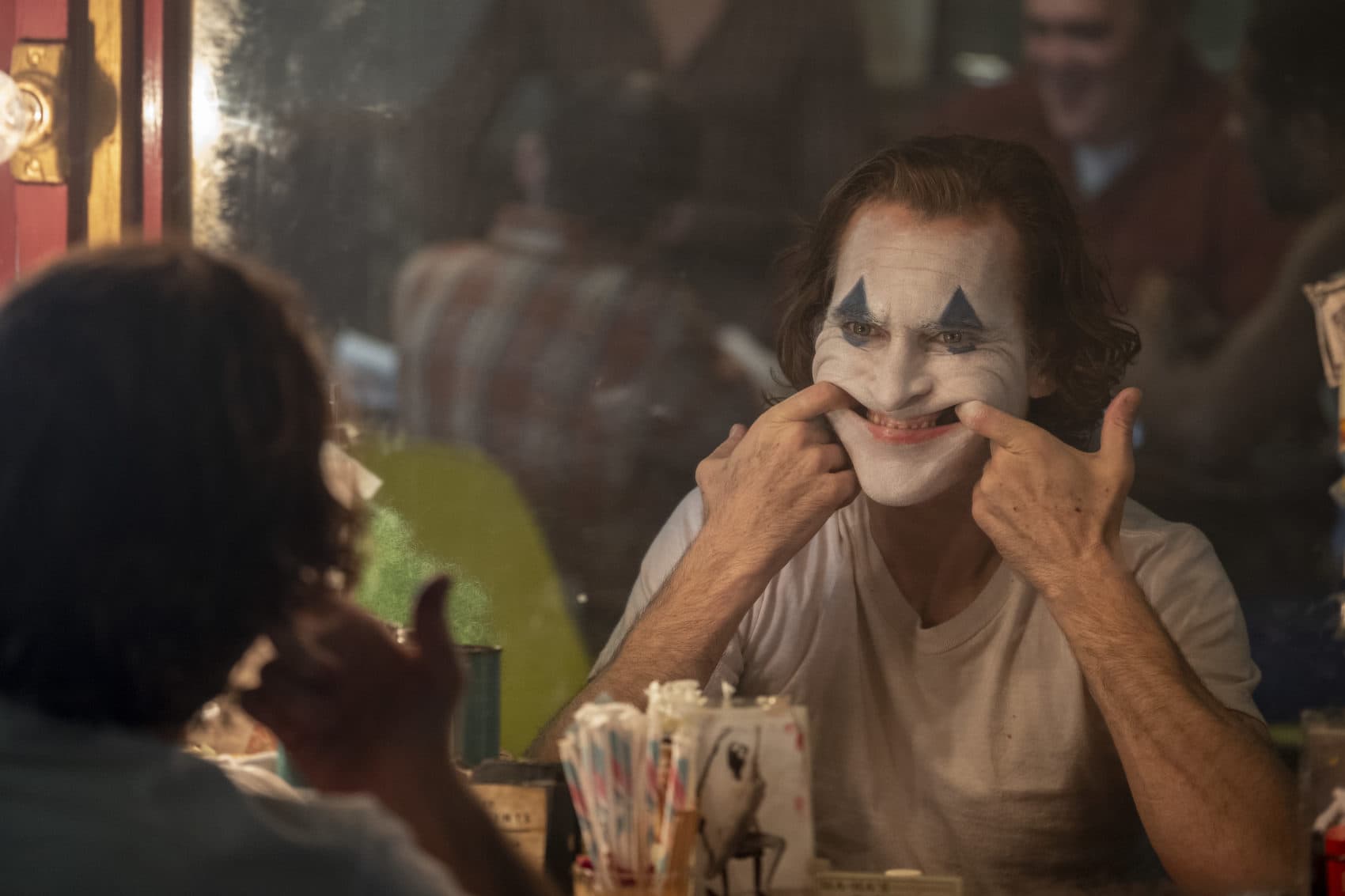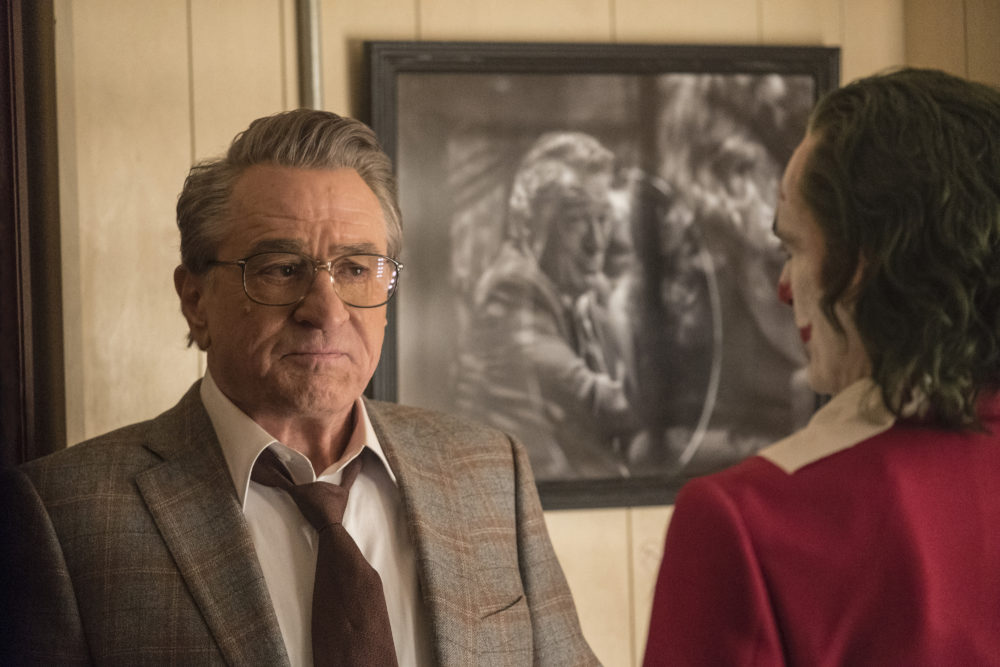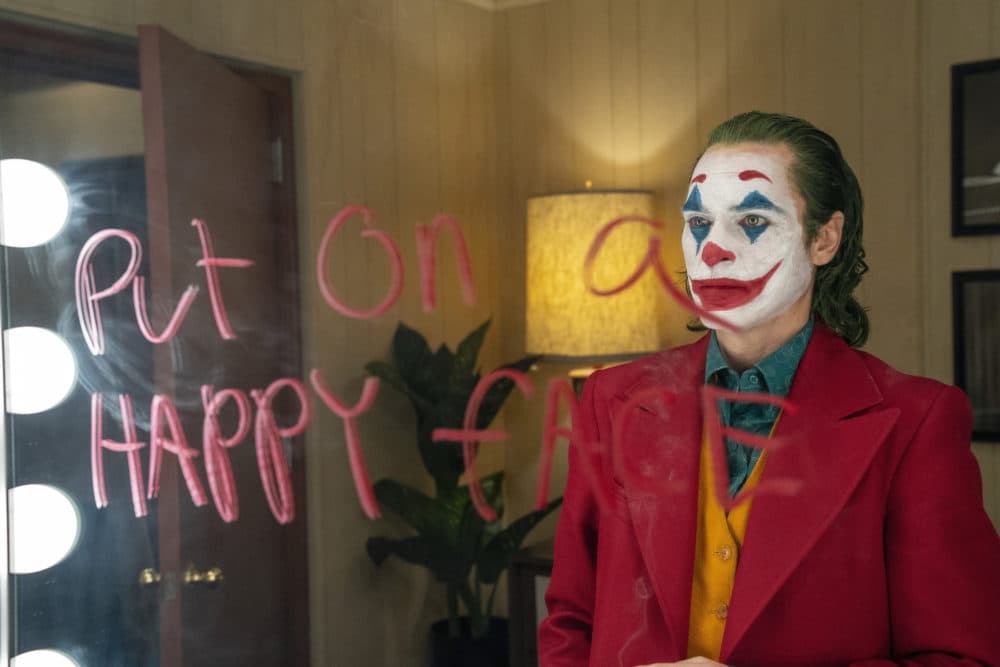Advertisement
Review
'A Monotonous Slog,' Todd Phillips' 'Joker' Pitilessly Chronicles The Embarrassments Of A Hapless Clown

On March 30, 1981, John Hinckley Jr. shot Ronald Reagan and three other men outside the Hilton Hotel in Washington, D.C. It was later revealed he had done so to try and impress actress Jodie Foster, with whom he was obsessed and had been stalking around the Yale campus all year. Hinckley had seen Martin Scorsese’s “Taxi Driver” upwards of 15 times, and the shooting was his attempt to emulate Robert De Niro’s iconic psychopath Travis Bickle, who the would-be assassin considered a hero. In a sickly ironic twist that could be out of a Scorsese movie itself, this news broke while the director and star were attending that year’s Academy Awards ceremony — delayed a day due to the shooting — where De Niro accepted the Best Actor Oscar for their masterful “Raging Bull.”
Scorsese and De Niro’s next collaboration, 1983’s “The King of Comedy,” obliquely addressed the Hinckley incident with a curdled take on life inside the celebrity fishbowl. In the film, De Niro’s strenuously mediocre standup comedian kidnaps Jerry Lewis’ dyspeptic talk show host as a way to jump-start his showbiz career. It’s a sour, cringingly unpleasant movie that perplexed audiences at the time but has since proven to be one of the most prescient and perceptive films ever made about America’s unhealthy pop culture obsessions.
Todd Phillips’ “Joker” steals all sorts of scenes, shots and story points from “Taxi Driver” and “The King of Comedy” and mashes them together into an R-rated origin story for Batman’s archnemesis. It’s weird watching two classics of modern cinema being stripped for parts and repurposed as franchise fodder — like if the new Spider-Man movie suddenly started aping Ingmar Bergman. Joaquin Phoenix stars as Arthur Fleck, a hapless, mentally ill clown who gets mugged all the time and relentlessly bullied around an early 1980s Gotham City that looks very much like the Times Square of Travis Bickle’s midnight drives. De Niro himself is on board to give a benediction, in his latter-day, anything-for-buck mode as a pugnacious late-night talk show host upon whom Arthur becomes fixated.

For all intents and purposes, the first act of a movie dragged out to a little over two hours, “Joker” pitilessly chronicles all the abuses and embarrassments heaped upon poor Arthur until he finally snaps and starts shooting. As a viewing experience it’s a monotonous slog, one of those films that won’t stop patting itself on the back for being “edgy” because of all the f-words and squalor, when really it’s just another dull corporate product gussied up with adult-ish affectations and dorm room philosophizing about “society, man.” The movie wobbles under the weight of its own self-importance, carrying on as if it’s imparting some sort of serious social commentary while being extremely careful not to actually say anything at all.
“Joker” arrives in theaters this week atop a tsunami of hype — the picture quite preposterously won the Golden Lion at last month’s Venice Film Festival — and under a dark cloud of irresponsible media prognostications regarding possible audience unrest. Multiplexes are ratcheting up security measures as news outlets keep citing the 2012 Aurora, Colorado mass shooting on opening night of “The Dark Knight Rises” as if there haven’t been several “Batman” movies that have passed without incident since. Yet still, somehow this is all anybody keeps talking about, to a point where if “Joker” doesn’t end up inspiring a Hinckley it won’t be for the press’ lack of trying.
Yet at the same time, it’s hard to imagine anyone being motivated to do anything besides snore during this wan copycat of a movie, almost entirely comprised of borrowed parts from better pictures. Arthur’s moments with his mother (Frances Conroy) are nearly identical to some of Phoenix’s scenes in last year’s stunning “You Were Never Really Here,” itself a reworking of “Taxi Driver” to far more productive ends. Phillips even swipes the bit from Frank Miller’s seminal 1986 comic “The Dark Knight Returns” in which the Joker goes on “Late Night with David Letterman,” but fumbles what he did to Dave and Dr. Ruth. (The movie also misses an easy opportunity to skewer its star’s rather colorful history with talk show appearances.)

Joaquin Phoenix is one of the two or three greatest actors of his generation, and this is easily one of his worst performances. A collection of tics that includes a Tourette’s-like tendency to cackle at inappropriate moments, it’s all string-bean physicality and gimmicky stunts. We never see a soul inside of Arthur, so there’s no tragedy to his psychic disintegration. Like the movie itself, his Joker is just a series of empty poses.
Even the cinematography is massively overblown, every shot art-directed within an inch of its life like the “urban blight” section of a designer catalog. (Warner Bros. has struck 70mm prints that will screen at the Somerville and Coolidge Corner Theatres, which calls to mind that old saying about putting a silk hat on a pig.)
Meanwhile, the extent of the corporate cowardice can be seen in how gingerly this “Joker” side-steps the subjects of racism and misogyny — central motivating factors for most violent loners who lash out, yet in this Gotham City, neither issue even exists. (Think back for a moment to “Taxi Driver,” in which Travis Bickle’s repellent racism was so foregrounded Scorsese cast Harvey Keitel in the role of Foster’s black pimp to try and take it down a notch.) For all the film's blathering about “society,” it isn’t engaged with one remotely resembling our own.
Todd Phillips has obviously seen a lot of Martin Scorsese movies, but I don’t think he understood them very well.
